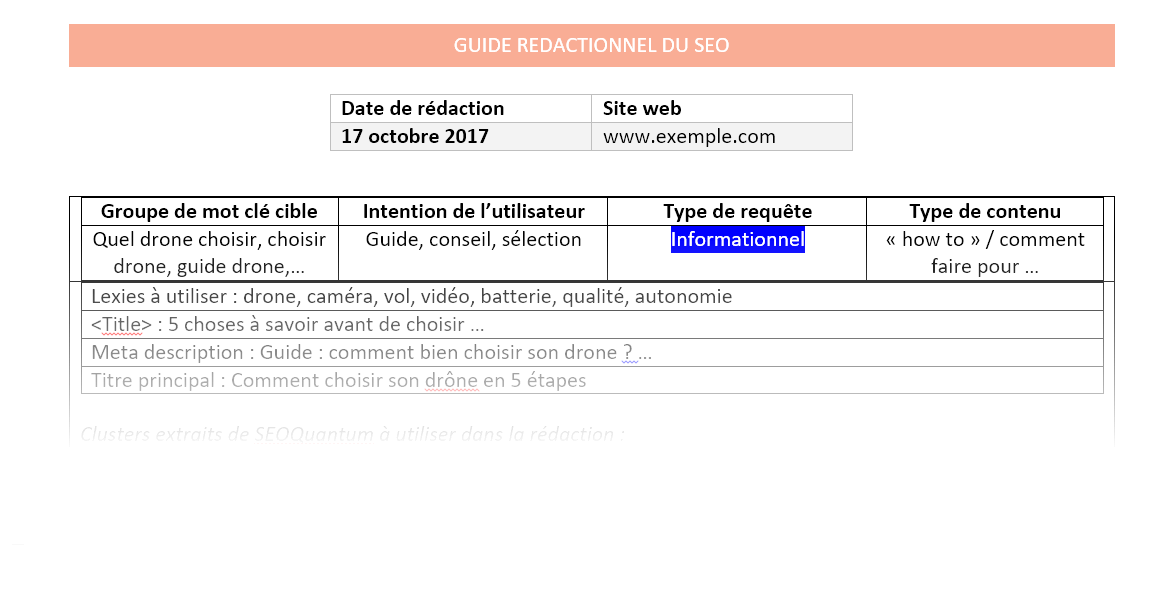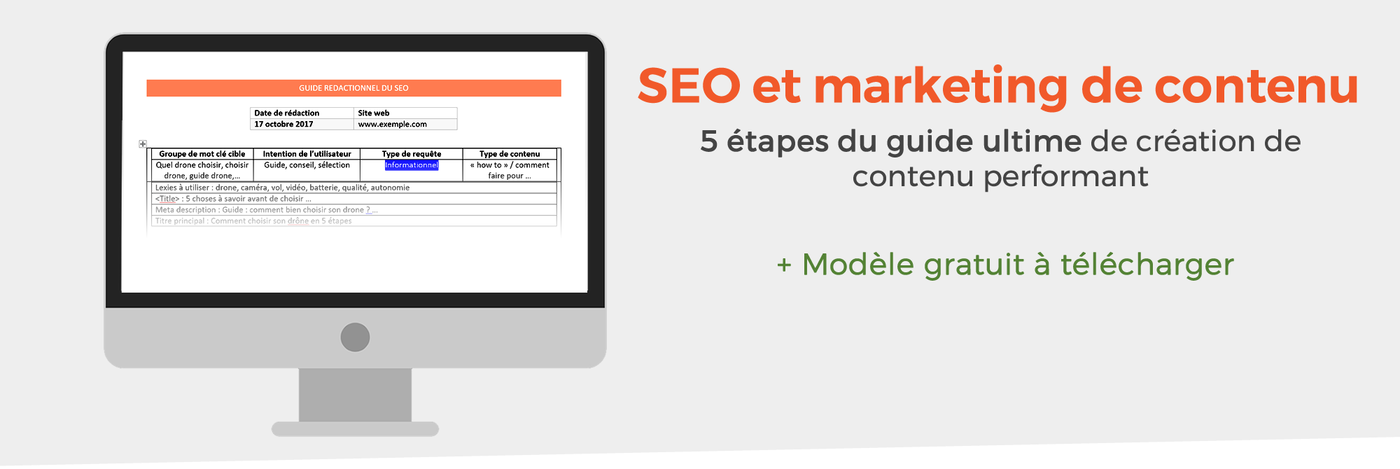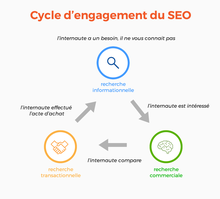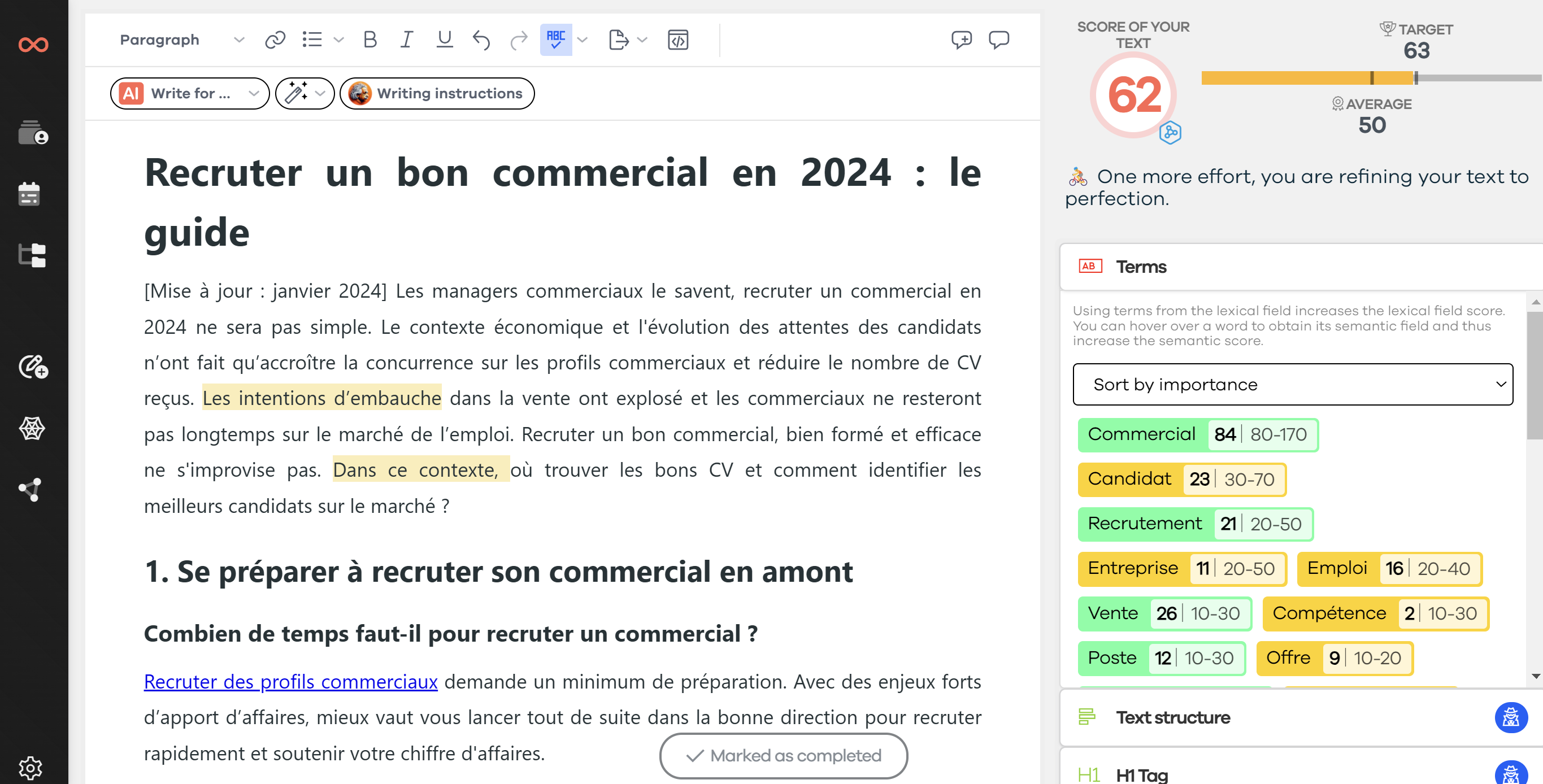What should we prioritize: SEO or content marketing? Many marketing specialists often ask this question, but it's a false dilemma.
SEO is not just a list of technical considerations to comply with for implementation or a keyword strategy for promoting a site. The efforts made in SEO, such as Keyword Research and understanding Search Intent, can help to develop a formidable content marketing strategy. As a copywriter, whether you're writing a brand's content or modifying another, let SEO help you create content that enhances your client's reputation, generates leads, and increases return on investment.
The marriage of "content marketing" and SEO is inevitable
Content is at the heart of what we do as marketing specialists. We speak to our target audience, our customers, and our readers, and what we tell them is our content.
But to be read, you must be seen. By this simple paradigm, you understand that it's essential to write content that's visible on the Internet.
Many content marketers think that keywords are dead. Keywords are not dead. As long as people use words to communicate with search engines, keywords will remain a significant consideration for organic search optimization.
On the other hand, without content, SEOs would have nothing to optimize for search engines. The two professions cannot live without each other. Below, you will discover writing assistance for creating high-performing, visible, and lead-generating marketing content.
Determine the target keyword group
Use Keyword Research from your target idea. Keyword research is the first step in generating content ideas with SEO value. Keyword research can also help identify trends likely to bring relevant visitors to your website. These are the keywords generating qualified traffic.
There are several ways to generate a list of valuable keywords:
- Google Keyword Planner
- Google's suggested searches
- Google Trends
- Social networks: Facebook groups, Twitter conversations, etc.
- The sales department: they know the vocabulary used by your audience perfectly
Creating a keyword list will help you understand how your target audience talks about your target idea in the industry and is the first step in creating high-performing content. Once a list of keyword ideas has been created, it's time to ensure that you understand the user's intent behind this query.
Determine the user's need
Keywords are useless without analyzing the user's intent. Search Intent defines what a user is looking for when they perform a query on the engine.
Take your list of target keywords and start googling them. Take some notes as you go:
- Do certain similar keywords give very similar results? Group them into a keyword family to use them in the same content.
- Do they provide information, detailed steps, or sales/product pages?
- What types of content and titles dominate the SERPS? Are there many infographics? Videos?
Other methods: use the SEO Quantum deep learning engine to determine the hidden semantic concepts behind a keyword and thus deduce the user's intent.
Determine the level of the keyword engagement cycle
Create content that fully covers an engagement cycle. Each keyword has its type of query that corresponds to the level of user engagement. The type of query used by the user can indicate where in the buying journey the keyword is used. To learn more, review the SEO engagement cycle.
- Informational - Users are looking for detailed content, they are exploring different solutions. The user is at the beginning of the conversion funnel.
- Commercial - Users are preparing to buy, they need to understand the product or service and compare it with the competition.
- Transactional – The user takes action. Their goal is to perform a search with the intention of carrying out an action considered a conversion.
Determine the type of content to use
What form should my content take? Depending on the type of query targeted, you can determine the type of high-performing content. It's straightforward, you can use the matrix below:
- Informational: Rich content, infographics, statistics, slideshows, and definitions
- Commercial: "Best of" lists, case studies
- Transactional: Landing pages, pricing pages, and product feature lists
Use lexies to write high-performing content
High-performing content requires depth. Don't create content tailored to a single keyword anymore. To maximize your organic search optimization and thus the visibility of your content, think "semantic universe". Use additional lexies that appear on the same semantic concept. Google searches for these lexies to "validate" your content.
To determine these high-performing lexies, you can:
- Use your intuition. In your client's industry, the basic lexies should be obvious to you, for example, brand names, product names, services, and industry terms. An example: a digital agency will use lexies that describe its services: SEO, content marketing, emailing, website creation, etc.
- Use a tool. From the target keyword, you can perform a semantic analysis to discover additional lexies to consider in your web writing. There are a variety of lexie search tools that can be used, SEO Quantum integrates this feature (use the similarity coefficient of our SEOQuantum tool)
For web copywriters who only publish content on a blog without worrying about SEO, this SEO content guide is a huge step forward. You need to know how to organize and develop an action plan before producing high-performing content.
The idea here is to speak the same language as your audience and deliver the right content at the right time. And that's the only way to truly succeed in content creation.

Fill out the form below to access our model of the ultimate SEO content marketing guide.
Need to go further?
If you need to delve deeper into the topic, the editorial team recommends the following 5 contents:


